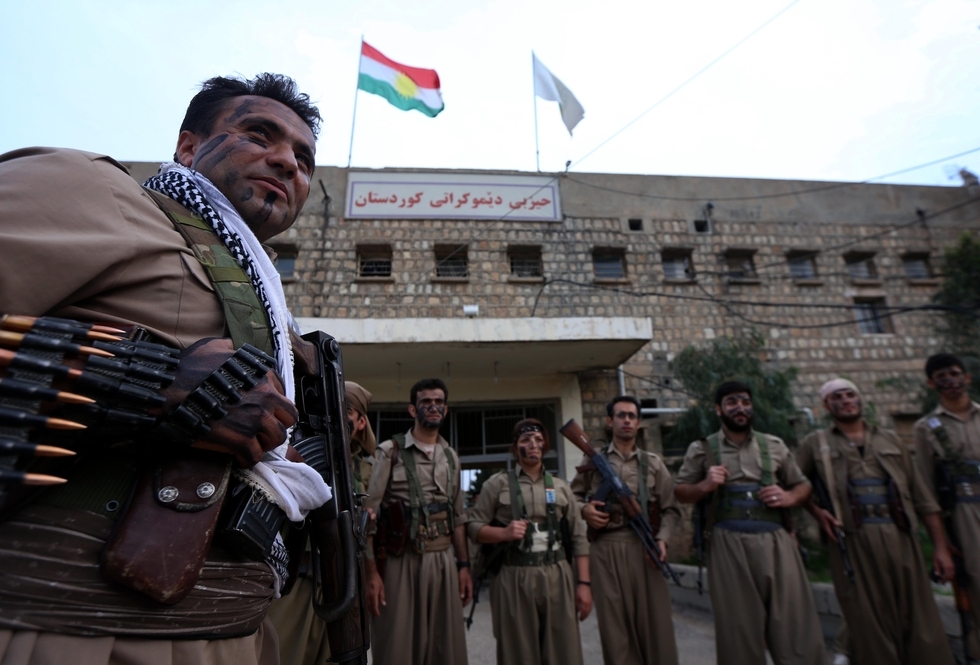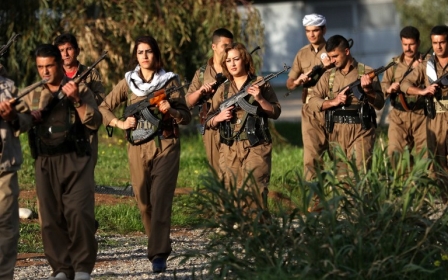Clashes in Iran kill 11 Kurdish rebels, three Revolutionary Guards

Eleven Kurdish rebels and three of Iran's Revolutionary Guards force were killed in clashes near the Iraqi border on Tuesday, the state Fars news agency reported.
A statement by General Mohammad Hossein Rajabi, commander of the Revolutionary Guards in Kurdistan province, called the killed rebels "counter-revolutionaries," a reference to Iran's 1979 Islamic Revolution.
"A group of 11 counter-revolutionaries linked to the Kurdistan Democratic Party of Iran (KDPI), who were attempting to infiltrate the country were immediately detected... and were eliminated after 10 days of pursuit in the Sarvabad region," said .
He added that three members of the Revolutionary Guards had also been killed.
The news followed reports on Sunday that five rebels had been killed in the region. It was not clear if these were included in the 11 reported dead on Tuesday.
The commander of the Revolutionary Guards' ground forces, General Mohammad Pakpour, threatened on Sunday to launch cross-border attacks against rebel bases in northern Iraq.
"Since the main bases of these terrorists are in northern Iraq, if they don't follow through with commitments to stop these attacks, their bases will be targeted where they are," he said.
The KDPI is the oldest Kurdish party in Iran, having formed in 1945.
It has fought on-off insurgencies demanding independence, stepping up its armed rebellion after a crackdown by the Islamic authorities in the wake of the 1979 revolution.
Iran intervened across the border in 2011 following Kurdish rebel attacks on its territory, forcing the insurgents to retreat deeper into Iraqi territory.
Iraq's Kurdish authorities have also worked to keep the rebels away from the Iranian border, greatly limiting attacks in recent years.
But there has been increased activity in recent weeks, with Iran reporting at least 17 Kurdish rebels and four security personnel killed in clashes in the northwest this month.
Middle East Eye propose une couverture et une analyse indépendantes et incomparables du Moyen-Orient, de l’Afrique du Nord et d’autres régions du monde. Pour en savoir plus sur la reprise de ce contenu et les frais qui s’appliquent, veuillez remplir ce formulaire [en anglais]. Pour en savoir plus sur MEE, cliquez ici [en anglais].




